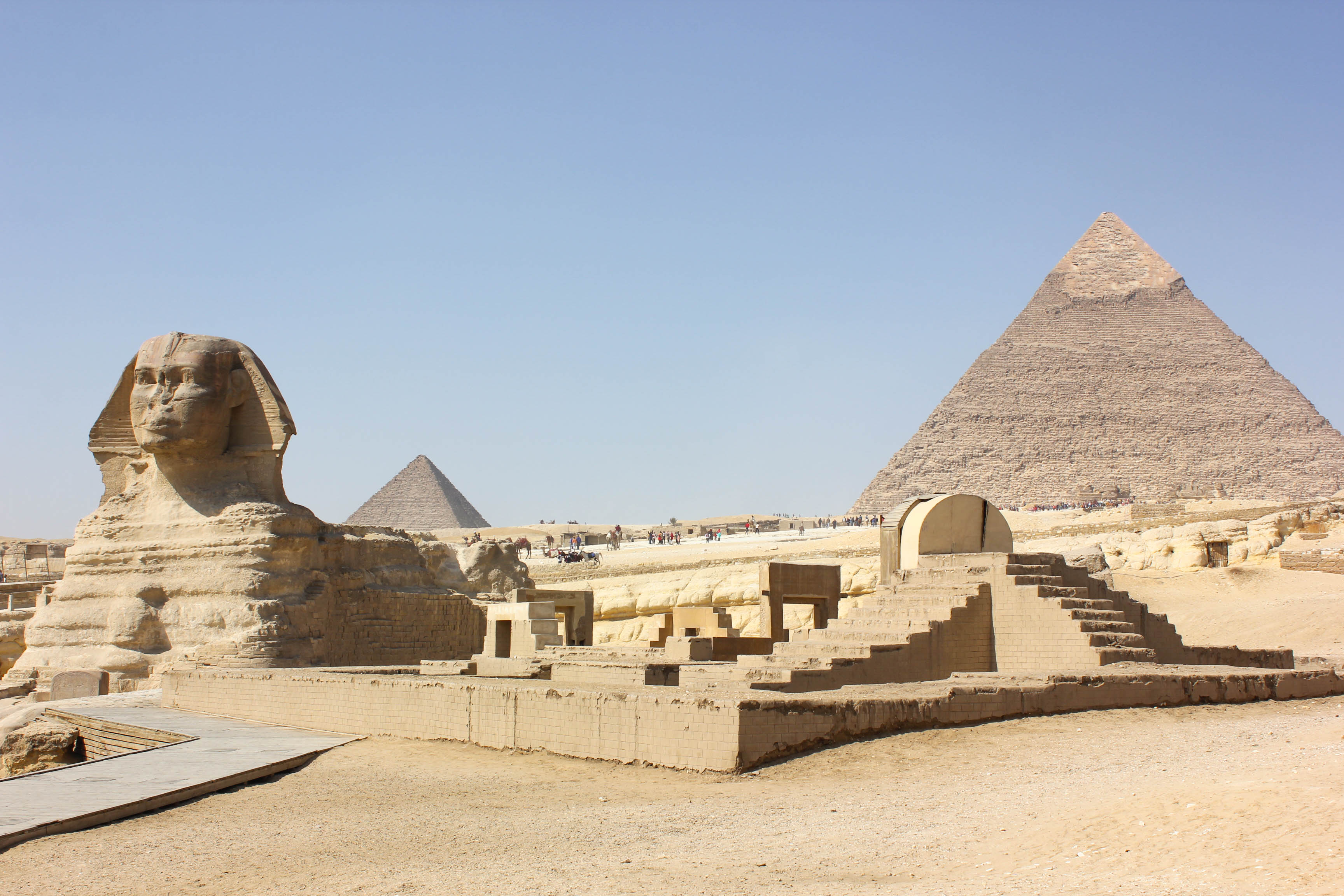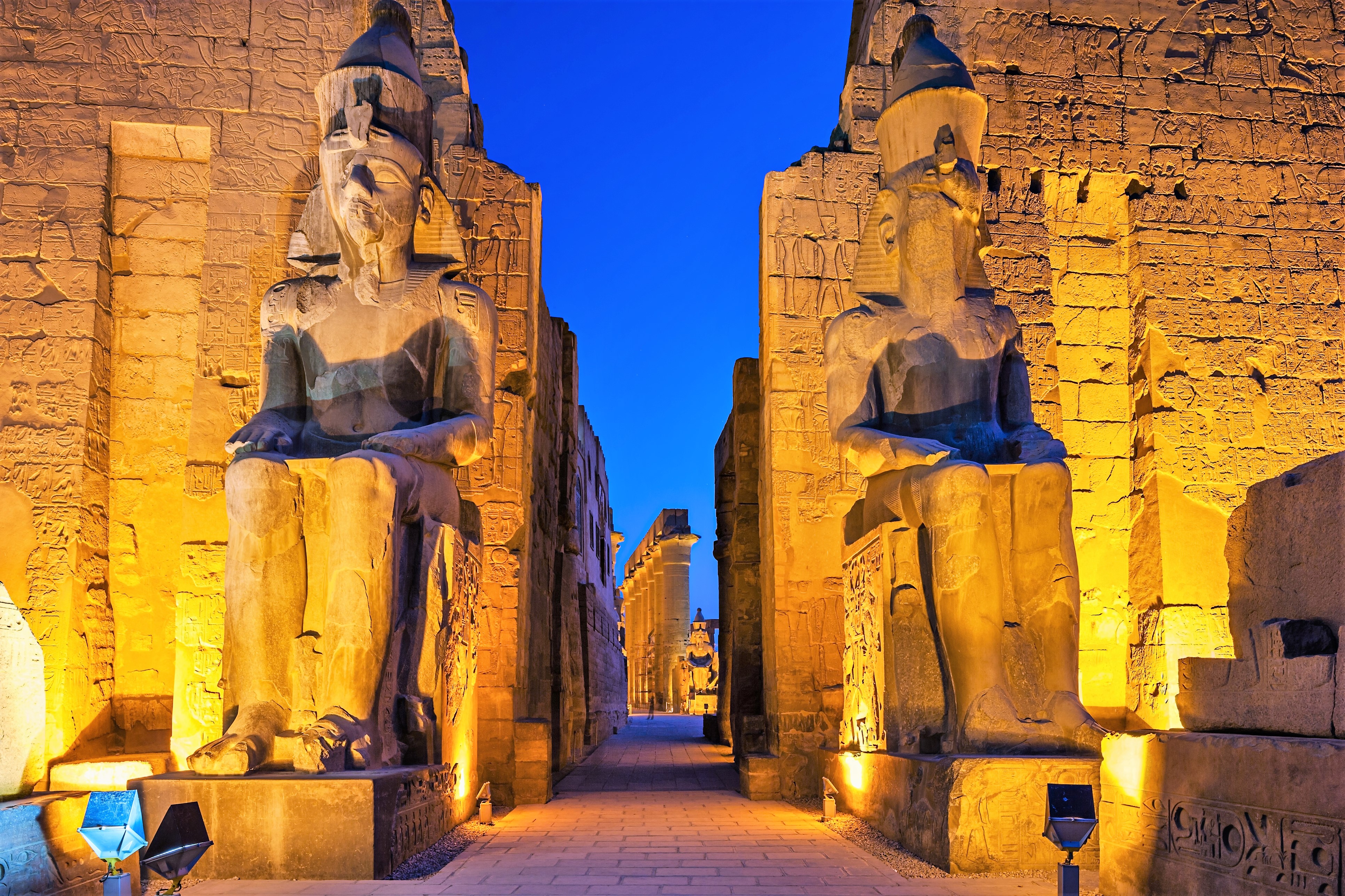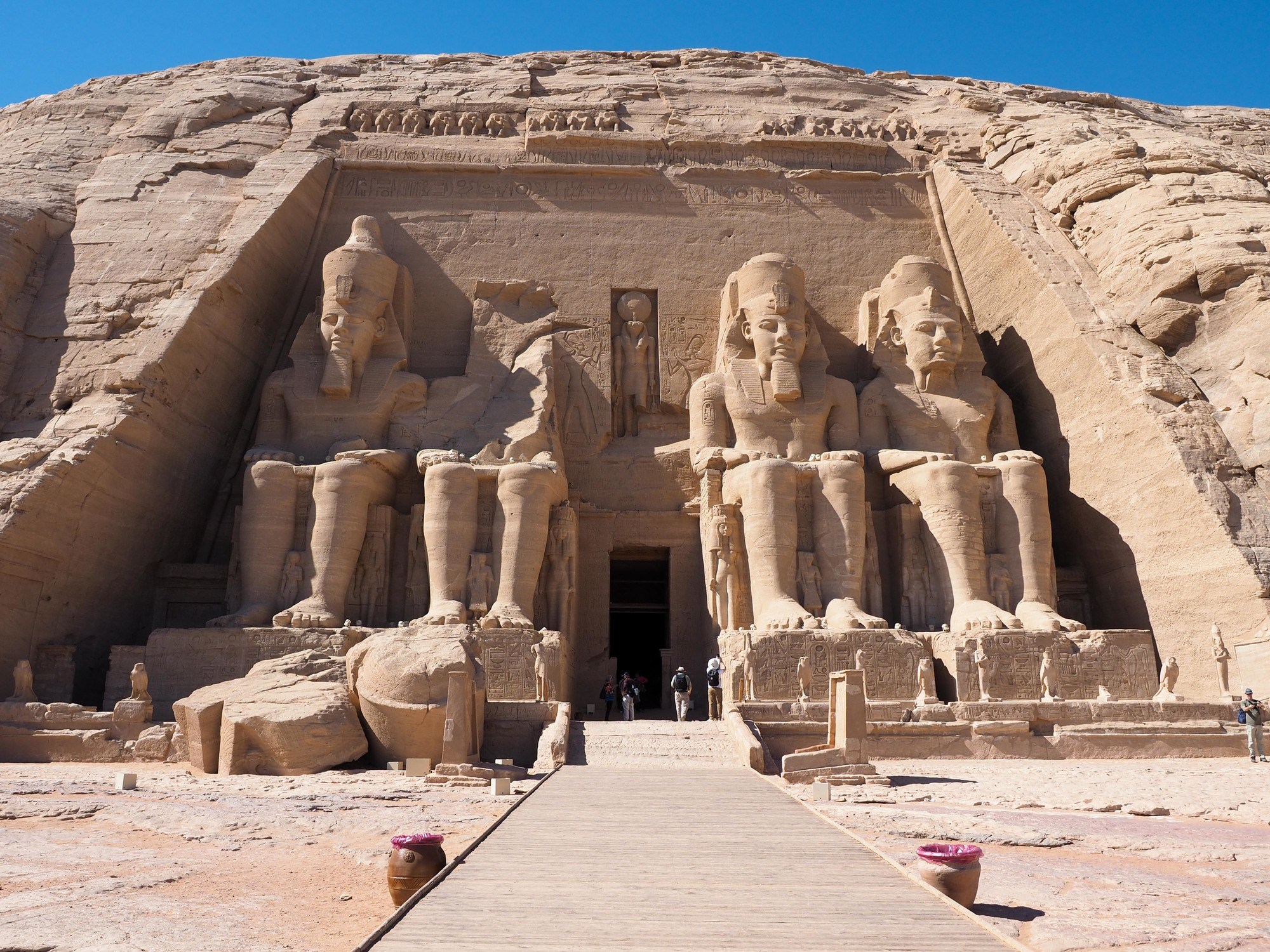From Cairo To Tehran: Unpacking Egypt-Iran Relations
A Historical Tapestry: Early Ties Between Egypt and Iran
The relationship between Egypt and Iran boasts a rich historical backdrop, far predating modern nation-states. Both civilizations, cradles of ancient empires, have interacted through trade, conquest, and cultural exchange for millennia. However, it is in the 20th century that we observe the formalization of diplomatic relations that would set the stage for their contemporary interactions. In the 1930s, Egypt, then ruled by King Farouk I, maintained amicable relations with Iran, although they were not considered close allies in the grand scheme of global politics. This period was characterized by a pragmatic approach to foreign policy, where shared interests and a burgeoning sense of national identity began to shape their interactions. A pivotal moment that significantly boosted this relationship was the royal marriage in 1939. Princess Fawzia of Egypt, the elegant sister of King Farouk I, married Mohammad Reza Pahlavi, who was then the Crown Prince of Iran and would later become the Shah. This union was more than just a personal affair; it was a strategic alliance designed to strengthen ties between the two monarchies, symbolizing a shared vision of modernization and regional influence. In the very same year, diplomatic relations between Egypt and Iran were officially upgraded to an ambassadorial level, marking a significant step forward in their formal engagement. Youssef Zulficar Pasha was appointed as Egypt's first ambassador in Tehran, solidifying the diplomatic channels and paving the way for closer cooperation. This era represented a period of relative warmth and collaboration, laying down a foundation that, despite future upheavals, would always remain a point of reference for potential reconciliation. The marriage, while ultimately ending in divorce, underscored a unique chapter where personal bonds intersected with high-level statecraft, fostering a brief but significant era of enhanced bilateral understanding.The Rupture: 1979 and Beyond
The amicable relations cultivated in the mid-20th century, culminating in royal matrimony and ambassadorial exchanges, were dramatically severed in 1979. This year marked a profound turning point for both nations and the broader Middle East. Following Iran's Islamic Revolution, which overthrew the Shah and established an Islamic Republic, the new Iranian government adopted a radically different foreign policy, rooted in anti-imperialism and revolutionary ideals. One of the immediate consequences of this ideological shift was the severing of diplomatic ties with Egypt. The primary catalyst for this rupture was Egypt's decision, under President Anwar Sadat, to sign the Camp David Accords with Israel in 1978 and the subsequent peace treaty in 1979. For the revolutionary government in Tehran, this act was seen as a betrayal of the Palestinian cause and a capitulation to Western influence, particularly that of the United States. Furthermore, Egypt's decision to grant asylum to the deposed Shah Mohammad Reza Pahlavi, who eventually died in Cairo, further inflamed tensions and solidified Iran's decision to cut all diplomatic relations. Since that pivotal year, both nations have maintained a cautious distance, characterized by minimal official contact and a deep-seated mistrust that lingered for decades. While unofficial channels and occasional third-party mediations might have existed, the formal diplomatic void created a significant chasm, impacting everything from trade to regional cooperation. The memory of 1979 cast a long shadow, defining the parameters of their interactions and ensuring that any future rapprochement would be a slow, deliberate, and often challenging process.Glimmers of Rapprochement: Recent Overtures
Despite the decades of diplomatic freeze, recent years have witnessed notable glimmers of rapprochement, suggesting a potential thawing in the frosty relationship between Egypt and Iran. These overtures are not isolated incidents but rather part of a broader, cautious movement towards mending ties. It is one of several recent outreaches to Egypt by Iran, indicating a strategic shift in Tehran's foreign policy. High-level engagements, though often discreet, have begun to signal a mutual interest in reducing regional tensions and exploring avenues for cooperation. For instance, Iranian Foreign Minister Abbas Araghchi met with top Egyptian officials, demonstrating a willingness from both sides to engage in dialogue after years of estrangement. These meetings, even if exploratory, are crucial in rebuilding trust and understanding. A tangible sign of warming relations occurred in 2013 when Iranian tourists started flocking to Egypt in their thousands. This surge in tourism, particularly to religious sites, underscored a latent desire for cultural and people-to-people exchange that had been suppressed by political animosity. While there were expectations that the Rouhani administration might give new momentum to bilateral ties, Tehran's regional and global priorities, particularly its focus on nuclear negotiations and relations with Western powers, pushed Egypt to a secondary position for a period. However, the underlying current of seeking improved relations has persisted. Encouraged by recent strides made in the normalization of relations between various regional players, both Egypt and Iran appear to be moving toward a closer relationship, recognizing the mutual benefits that could arise from such a shift. This slow but steady progression suggests a pragmatic approach, where shared interests might eventually outweigh historical grievances.The Economic Imperative: Suez Canal and Trade
A significant driving force behind the recent overtures between Egypt and Iran is the compelling economic imperative. For Iran, improved relations could facilitate substantial economic expansion, primarily through increased use of the Suez Canal and enhanced trade with Egypt. The Suez Canal, a vital global maritime artery, offers the shortest shipping route between Europe and Asia. For Iran, a nation heavily reliant on oil exports and seeking to diversify its trade partners, unhindered and cost-effective access through the Canal is strategically invaluable. A normalized relationship with Egypt would mean smoother transit, potentially lower tariffs, and a more reliable route for its vast shipping needs, bypassing longer and more expensive alternatives. Beyond transit, enhanced trade with Egypt itself presents a lucrative opportunity for Iran. Egypt, with its large population and growing economy, represents a significant market for Iranian goods and services. Conversely, Iran offers a gateway for Egyptian products into the broader Central Asian and Caucasian markets. The potential for bilateral trade in various sectors, from agriculture to manufacturing and energy, is immense. Economic cooperation could extend to joint ventures, investment opportunities, and shared infrastructure projects, creating a mutually beneficial economic ecosystem. This economic rationale serves as a powerful incentive, often transcending political differences, as both nations seek to bolster their economies in a challenging global landscape. The prospect of unlocking significant economic gains acts as a strong gravitational pull, drawing Cairo and Tehran closer despite lingering geopolitical complexities.Geopolitical Chessboard: Egypt's Role and Regional Dynamics
In the complex geopolitical chessboard of the Middle East, Egypt is undeniably a major player in the Arab world and the broader region. Its strategic location, demographic weight, and historical influence grant it a unique position in regional affairs. A rapprochement with Cairo would significantly enhance Iran’s reputation in the Arab world, where Tehran has often been viewed with suspicion due to its revolutionary ideology and regional interventions. By mending ties with Egypt, Iran could project an image of a more pragmatic and cooperative regional actor, potentially easing tensions with other Arab states and fostering a more stable regional environment. This shift would be particularly valuable for Iran, which has long sought to end its regional isolation, a key focus for President Ebrahim Raisi, who has spurned engagement with the United States and the West in favor of strengthening regional ties. Furthermore, Egypt’s potential role as a mediator between Iran and Washington could enhance its stature before the US, with implications beyond just the Palestinian issue. Cairo has historically maintained strong ties with both the US and various Arab states, positioning it as a credible interlocutor. Should Egypt successfully facilitate dialogue or de-escalation between Tehran and Washington, it would undoubtedly elevate its diplomatic standing on the international stage, demonstrating its capacity to play a constructive role in resolving major geopolitical impasses. This strategic leverage could open doors for Egypt in other areas of its foreign policy, reinforcing its image as a reliable partner and a force for stability. The intricate web of alliances and rivalries in the Middle East means that any significant shift in the Egypt-Iran relationship has ripple effects, potentially reshaping regional power dynamics and opening new pathways for dialogue and cooperation.Navigating Regional Tensions: The Israel-Iran Conflict
The delicate process of rapprochement between Egypt and Iran is inevitably complicated by the volatile regional landscape, particularly the escalating tensions between Israel and Iran. The effects of these hostilities have unfortunately found their way into Africa, particularly countries located in the MENA region, with Egypt currently feeling the most heat from the recent conflict. The recent direct confrontations, such as the massive drone and missile attack from Iran, which was foiled by a coalition that comprised Israel, the United States, Britain, France, Qatar, Egypt, Jordan, Saudi Arabia, and the United Arab Emirates, highlight the precarious security situation. Egypt's participation in this defensive coalition underscores its deep concern over regional stability and its willingness to act to prevent broader conflict. This heightened state of alert has direct implications for Egypt's tourism sector, a crucial pillar of its economy. Egypt has long been a popular choice for British travellers and tourists from around the world, drawn by its ancient wonders and Red Sea resorts. However, Israel’s attack on Iran and the strikes that followed have raised concern over its safety as a holiday destination. Perceptions of regional instability, even if the direct conflict is far from tourist areas, can deter visitors, leading to significant economic repercussions. For Cairo, balancing its desire for regional stability and potential rapprochement with Tehran against its security concerns and economic interests is a complex challenge. The ongoing Israel-Iran tensions serve as a constant reminder of the fragility of peace in the region and the multifaceted pressures that influence the evolving relationship between Egypt and Iran.Travel and Connectivity: Bridging the Distance
Despite the political complexities and historical rifts, the geographical reality is that Egypt and Iran are not astronomically distant. The air travel (bird fly) shortest distance between Egypt and Iran is approximately 2,297 km or 1,427 miles. For those considering direct travel, if you travel with an airplane (which has an average speed of 560 miles per hour) from Egypt to Iran, it takes approximately 2.55 hours to arrive. This relatively short flight time underscores the physical proximity that, under different political circumstances, could facilitate robust people-to-people connections and economic exchanges. For travelers looking to bridge this distance, Rome2rio makes travelling from Egypt to Iran easy, providing a comprehensive platform to find all the transport options for your trip. Whether by air, or a combination of land and sea routes, the logistical pathways exist. However, direct flights and travel ease are heavily dependent on diplomatic relations. The recent warming of ties has seen an increase in Iranian tourists to Egypt, signaling a demand for such connections. Yet, the political climate remains sensitive. For instance, speaking to Iran’s ISNA news agency, the head of Iran’s international airport in Tehran, Saeed Chalandari, denied reports of a warning against entering the airspace of western Iran, but it was not clear if that applied to the entire country. This highlights the lingering caution and the need for clear communication regarding travel advisories and airspace safety, especially in a region prone to sudden geopolitical shifts. Compare cheap Egypt to Iran flight deals from over 1,000 providers, then choose the cheapest plane tickets or fastest journeys – this consumer-centric approach to travel highlights the underlying potential for connectivity that awaits full diplomatic normalization.Challenges and Opportunities in Bilateral Ties
The journey from Egypt to Iran, both literally and figuratively, is fraught with challenges, even as opportunities for closer ties emerge. One of the primary challenges stems from Iran's broader foreign policy orientation. President Ebrahim Raisi’s main focus, on the other hand, has been spurning engagement with the United States and the West in favor of ending Iran’s regional isolation. While this aligns with seeking rapprochement with Arab states like Egypt, it also means that Tehran's priorities might sometimes diverge from Cairo's, especially given Egypt's strong alliances with Western powers and Gulf states. This fundamental difference in strategic alignment can create friction and limit the depth of engagement. Moreover, the legacy of the 1979 rupture and the subsequent decades of mistrust cannot be easily erased. Deep-seated suspicions, differing regional agendas (particularly concerning conflicts in Yemen, Syria, and Lebanon), and sectarian sensitivities continue to pose significant hurdles. However, these challenges also present opportunities. For Egypt, playing a mediating role between Iran and Washington, or even between Iran and its Gulf rivals, could significantly enhance its regional and international standing. For Iran, improved relations with Egypt, a major Arab power, could be a crucial step in breaking out of its isolation and fostering a more stable regional environment conducive to economic growth. The cautious approach taken by both sides reflects an understanding of these complexities, suggesting that any progress will be incremental and pragmatic, focusing on areas of mutual benefit while carefully navigating sensitive geopolitical issues.The Path Forward: Prospects for Egypt-Iran Relations
The trajectory of relations between Egypt and Iran, while historically volatile, appears to be charting a new course towards reconciliation. Encouraged by recent strides made in the normalization of relations across the Middle East, particularly between Saudi Arabia and Iran, both Egypt and Iran appear to be moving toward a closer relationship and a mending of ties. This is not a sudden leap but a gradual, deliberate process, driven by a confluence of factors including economic necessity, a desire for regional stability, and the recognition that prolonged animosity serves neither nation's interests. The potential for a more stable and cooperative Middle East hinges, in part, on the ability of its major players to find common ground. For Cairo, a pragmatic engagement with Tehran could open new diplomatic avenues and strengthen its position as a regional mediator. For Tehran, rapprochement with Egypt, a respected voice in the Arab world, offers a pathway to reduce its isolation and enhance its regional legitimacy. While the road ahead is undoubtedly long and fraught with potential setbacks, the current momentum suggests a shared willingness to explore the possibilities of renewed cooperation. This could manifest in increased trade, cultural exchanges, and even coordinated efforts on regional issues where their interests align, such as counter-terrorism or economic development. The future of Egypt to Iran relations is likely to be characterized by cautious engagement, building trust step-by-step, and prioritizing mutual benefits over historical grievances.Beyond Politics: Cultural Exchange and People-to-People Connections
While diplomatic and economic considerations often dominate discussions of state-to-state relations, the true depth of connection between Egypt and Iran lies also in their rich cultural heritage and the potential for people-to-people exchanges. Both nations boast ancient civilizations, with profound contributions to art, literature, science, and philosophy that have influenced the world. The historical intermingling of Persian and Egyptian cultures, evident in architecture, language, and customs, provides a fertile ground for renewed cultural exchange. The surge of Iranian tourists flocking to Egypt in their thousands in 2013, as relations warmed, serves as a powerful testament to this underlying desire for connection. These visitors were drawn not just by the iconic pyramids and historical sites, but also by religious shrines and the shared Islamic heritage. Re-establishing direct flights, facilitating cultural visas, and promoting educational exchanges could unlock immense potential for mutual understanding and appreciation. Imagine Egyptian scholars visiting ancient Persian libraries, or Iranian artists showcasing their work in Cairo. Such exchanges could help bridge the ideological divides that have plagued their political relationship, fostering empathy and building a foundation of shared humanity. Beyond the formal diplomatic channels, these grassroots connections are vital for sustainable peace and a truly mended relationship between the peoples of Egypt and Iran, demonstrating that their bond extends far beyond the realm of politics.Conclusion: A Cautious Optimism
The journey from Egypt to Iran has been a tumultuous one, marked by periods of close alliance, dramatic rupture, and cautious re-engagement. From the royal marriage that symbolized a golden era of diplomatic ties in 1939 to the sharp severance following the Islamic Revolution in 1979, the relationship has mirrored the broader geopolitical shifts in the Middle East. However, recent years have shown undeniable signs of a pragmatic thaw, driven by shared economic interests, a desire for regional stability, and a recognition of each other's strategic importance. While significant challenges remain, particularly navigating regional tensions and differing foreign policy alignments, the momentum towards mending ties is palpable. The potential for increased trade through the Suez Canal, enhanced diplomatic standing for Egypt as a mediator, and the re-establishment of vibrant people-to-people connections offer compelling reasons for both nations to continue on this path of reconciliation. The future of Egypt-Iran relations will likely be a gradual process, characterized by cautious optimism and incremental steps. As two pivotal players in the Middle East, their ability to forge a more cooperative relationship could have profound and positive implications for regional peace and prosperity. What are your thoughts on the evolving relationship between Egypt and Iran? Do you believe a full normalization of ties is achievable, and what impact do you foresee it having on the wider Middle East? Share your perspectives in the comments below, and explore our other articles on regional diplomacy and historical connections.- Iran Observer Twitter
- Iran Asia
- Israel Vs Iran The Shadow War
- Who Is The President Of Iran
- Israel Military Size Vs Iran

Pyramids and Sculpture of Old Kingdom Egypt

Egypt 2019 - Billings Chamber of Commerce

8 of the Best Ancient Sites to See in Egypt